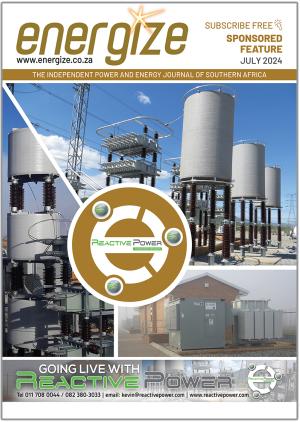The Palabora Mining Company (PMC), in Ba-Phalaborwa, has partnered with Mzansi Energy Consortium (Mzansi Energy) to develop a 132 MW solar PV plant and battery energy storage system (BESS) capable of storing 310 MWh of electricity. The “Marula Green Power” plant is expected to reach financial close in the second quarter of 2023 and commence operations in the second quarter of 2024.
Once deployed, the project will be one of South Africa’s largest private independent power producers (IPPs) and is intended to provide the mine with both security of supply and significant cost savings.
Wessel Wessels, CEO of Journey2Green (a founding partner in Mzansi Energy), says a long-term power purchase agreement (PPA) will be finalised between the parties once a six-to-eight-month detailed feasibility study has been completed.
“Mzansi Energy will design, finance, install, operate and maintain the plant for 12 years”, Wessels says.
“The plant will be based within the municipal jurisdiction of Ba-Phalaborwa, Limpopo, just outside Namakgale township, and will be approximately 20 km from the mine. The location is strategically chosen to allow for direct supply to the mine without connection to the Eskom grid,” Wessels explains.
Contribution towards sustainable development and green energy supply
Tumi Mogoera, Associate Director of Summit Partners (another founding partner in Mzansi Energy), says the project is one step towards helping South Africa address its electricity challenges. “Additionally, the Marula Green Power plant will contribute to our nation’s Just Energy Transition (JET) net zero carbon emissions strategy,” Mogoera points out.
Mzansi Energy’s local community upliftment plan
Mzansi Energy has partnered with the local traditional authority following a study to identify the ideal location, subject to a final environmental impact assessment (EIA). The authority will host the solar power plant on its land and enter into a long-term lease. This lease is conditional on specific socio-economic benefits for all local Ba-Phalaborwa communities in areas such as business opportunities for SMMEs, skills transfer/development, job creation, etc.
This project will create many direct and indirect employment opportunities. Based on initial estimates, the project could create about 500 to 750 fixed-term employment opportunities during construction and approximately 35 permanent jobs during the 12-year operation and maintenance period.
Other benefits will include a plan to improve food security and reduce poverty among local people by means of agrivoltaics. This technology uses a portion of the land for solar photovoltaic power generation and agriculture. The detailed plan shall be consulted with the stakeholders to ensure that the process unfolds in a fair manner for the benefit of the local communities.
















